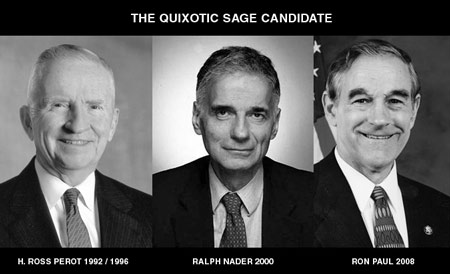 Do you ever wonder how much your way of life is based on arbitrary concepts and social tradition? Why do people own homes or rent apartments? Wouldn’t it be better if we all lived in shared dorms and made better use of mostly empty living space? Why do some people travel and move frequently while others live in one place their entire lives? Aside from a basic necessity for shelter, what motivates people to live the way they do? What ways can we live better? In what ways can we take advantage of modern technology to improve life? What options are we missing?
Do you ever wonder how much your way of life is based on arbitrary concepts and social tradition? Why do people own homes or rent apartments? Wouldn’t it be better if we all lived in shared dorms and made better use of mostly empty living space? Why do some people travel and move frequently while others live in one place their entire lives? Aside from a basic necessity for shelter, what motivates people to live the way they do? What ways can we live better? In what ways can we take advantage of modern technology to improve life? What options are we missing?
These things are worth thinking about.
My lease is up in June. I’m considering experimenting with my life, specifically my shelter. The goals for my new arrangements are simple: maximum flexibility and mobility, short-term commitments, low cost, and maximum ease. I would buy property, but I don’t want to tie myself down to the DFW area for the next five years. I would get an apartment, but I have little furniture and I would never spend time there. What other options are there?
The best idea I’ve come up with so far is to live in a hotel. It sounds crazy, but consider the benefits:
- No lease: No long-term commitments. Move whenever you like. No rent checks, no landlords. Pay by the week or just put it on your debit card / credit card. Earn points on your living expenses and make money on the float.
- Maid service: Ideal for someone who hates cleaning and making the bed.
- No utility bills: Most hotels have free cable, local phone service, and Internet access in addition to the usual power and water. Crank the A/C up in August and forget about it.
- Free continental breakfast: Most hotels serve a free continental breakfast. This saves you about $5 a day or $150 a month. Load up on free oatmeal and coffee.
- Swimming pools, fitness centers: Many apartments have pools, hot tubs, and fitness centers, but some don’t.
- No bad neighbors: If someone disturbs you, ask the front desk to move you to another room.
- 24 hour room service: Get hungry and don’t feel like leaving? Order in and keep on working.
- Concierge: Send off your clothes for drycleaning. Get your shoes shined. Have a copy of the Wall Street Journal dropped off at your door every day.
According to my calculations, living in a one bedroom apartment costs an estimated $700-$1500 a month after bills and rent. Living in a hotel suite, costs between $850-$2800 a month based on my estimates. This is a wide range based on your preferred level of luxury. Obviously, if you’re staying at a five star hotel it will cost you $5000 a month and up, but the level of service would be much better. This is more than most people need. For someone with minimal needs, hotel living is a good option based solely on economic grounds. When you consider the added benefits of flexibility and ease, it becomes even more compelling.
When I started researching hotel living as an option, I came across an article in Trendspotting about a trend they call “5-Star Living“. Apparently, many new luxury hotels, including the W here in Dallas, have a few floors set aside for permanent residences. These are condos with many of the features you would find at a luxury hotel: spa, concierge, room service, etc. As people move beyond the traditional suburban family unit and as baby boomers retire, this becomes a logical way of life for many.

 I have been reading the first volume of Robert Caro’s biography of President Lyndon Johnson,
I have been reading the first volume of Robert Caro’s biography of President Lyndon Johnson,  Do you ever wonder how much your way of life is based on arbitrary concepts and social tradition? Why do people own homes or rent apartments? Wouldn’t it be better if we all lived in shared dorms and made better use of mostly empty living space? Why do some people travel and move frequently while others live in one place their entire lives? Aside from a basic necessity for shelter, what motivates people to live the way they do? What ways can we live better? In what ways can we take advantage of modern technology to improve life? What options are we missing?
Do you ever wonder how much your way of life is based on arbitrary concepts and social tradition? Why do people own homes or rent apartments? Wouldn’t it be better if we all lived in shared dorms and made better use of mostly empty living space? Why do some people travel and move frequently while others live in one place their entire lives? Aside from a basic necessity for shelter, what motivates people to live the way they do? What ways can we live better? In what ways can we take advantage of modern technology to improve life? What options are we missing?